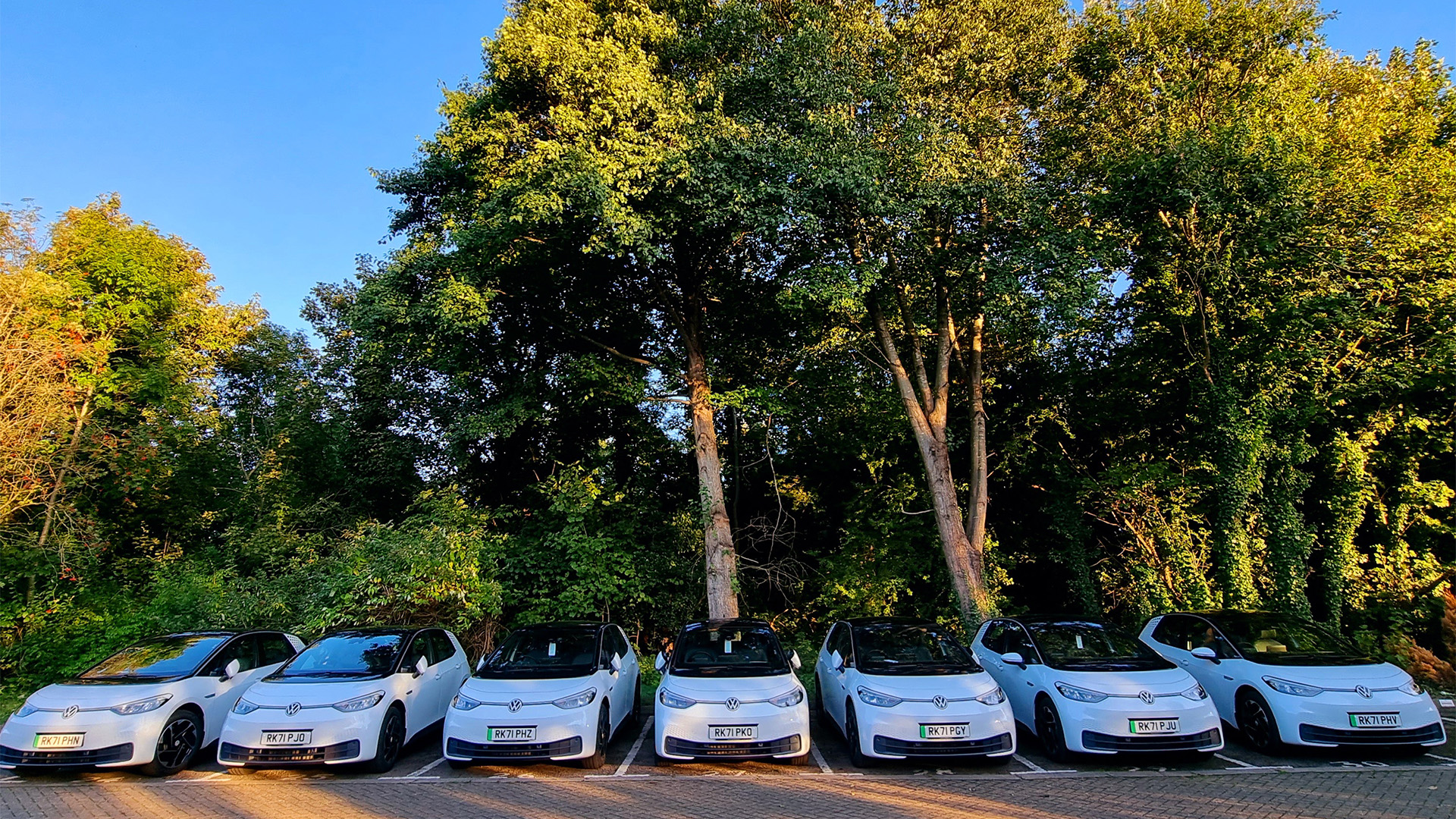After a smooth and successful transition to electric vehicles with Volkswagen Financial Services (VWFS) Fleet, Wenzel’s the Bakers has seen improved efficiencies and significant reductions in fleet costs, all while driving towards its sustainability objectives.
For just under 50 years, family business Wenzel’s the Bakers has been supplying communities across the South of England with delicious baked goods. With over 100 shops, the company has a busy fleet of area managers, who are charged with overseeing day-to-day operations across its store network.
Wenzel’s has a strong sustainability commitment, and in pursuing this, it was keen to address how it could further improve operational efficiencies and tackle rising fleet costs. The team reached out to VWFS Fleet, who would support in developing and implementing a strategic transition to electric vehicles (EVs) for its 15-strong area manager fleet.
Preparing for a smooth transition
“Managing Wenzel’s car fleet is just one part of my operations role, but it’s an important one,” explains Ross Robins, Operations Director at Wenzel’s. “Sustainability is a top priority for us. However, with rising costs affecting almost every business, we also wanted to understand how the transition to EVs could help to drive down our operational costs.”
Wenzel’s started working with VWFS Fleet in 2019. At the time, its area manager fleet consisted of 7 diesel and petrol vehicles, and the move to electric would be a significant strategic step for the business. Ross adds: “As a business, we were initially apprehensive about taking the step to electric. For example, a lot of our area managers live remotely, so we had to be certain about charging access that would enable them to continue to undertake large daily mileages to visit the stores.”
Following a full fleet analysis, VWFS Fleet was able to alleviate these concerns and demonstrate how the benefits of transitioning to an EV fleet would be tangible to the business.
As part of this, VWFS Fleet also assessed Wenzel’s existing vehicles, to understand whether they met the needs of the area managers. It was decided at this stage to switch the vehicles from vans to cars, as the cars were able to better meet the fleet’s needs, while offering a more comfortable driving experience. The switch to cars also offered a wider range of EV options to suit their drivers.
Engaging and supporting fleet drivers in the process
In 2021, VWFS Fleet began to phase out Wenzel’s diesel and petrol vans and replace them with a combination of electric cars, including Volkswagen ID.3s, Teslas, Audi A1s and other Volkswagen electric models.
“Although the business was on board with the benefits of EVs for our fleet, we also needed to ensure our area managers felt comfortable with the transition,” explains Ross. “We conducted a series of team engagement sessions, but we knew the only way to get our drivers completely on board was to enable them to experience the vehicles for themselves.
“Initially, we ordered six Volkswagen ID.3s, so the area managers could see how the EVs performed in practice. Since then, we haven’t looked back. Not only do the ID.3s offer more comfortable driving and ample range, with drivers only needing to top up every three to four days, but they’ve also brought significant cost savings.
“For the business, fuel costs have decreased dramatically, as well as Class 1A NI contributions. Additionally, with many of our stores located in and around London, we have also seen a significant reduction in expenses associated with entering low emissions zones. Our area managers have also benefited from reduced expenses, as the EV’s associated Benefit-in-Kind (BIK) payments are significantly lower.”
To alleviate any charging anxieties, Wenzel’s also installed home chargepoints for all area managers free of charge and installed workplace charging at several of its central stores, so drivers could easily top up when visiting.
Driving a more sustainable fleet
Alongside substantial cost savings, the switch to EVs has also – and importantly – enabled Wenzel’s to push ahead with its long-term sustainability agenda.
“From the offset, VWFS Fleet was able to clearly demonstrate the environmental benefits an EV transition would deliver for our company,” says Ross. “We can now take pride in running and maintaining a low carbon fleet that has a positive effect on the world around us, but without any compromise to our daily fleet needs.”
VWFS Fleet’s innovative tools are also helping Ross as he balances his varying responsibilities across Wenzel’s operations. “The Fleet Management Portal is a fantastic tool. It enables me to easily view and use a range of fleet-related data, all in one place. Through the trackers we have in each vehicle, I can, for example, quickly analyse mileage rates each day, week or month, which gives me a better and more accurate understanding of how the fleet is operating. It also delivers critical data to help with better-informed decision making in the future. This is extremely convenient and saves me a lot of time.”
Commenting on the success of Wenzel’s transition, Ross adds: “VWFS Fleet has been extremely helpful throughout our EV transition, and continue to support us with our future fleet ambitions. Our dedicated Account Manager, Tara Kitchener, is proactive and always on hand if we need any help. On several occasions, she has been able to deliver new vehicles right at the last minute when we’ve had a new area manager starting. I can’t fault her or VWFS Fleet; they deliver everything we could need or want. It’s all we could ask for.
“Our transition to EVs has been a resounding success. Our daily fleet operational costs have been slashed and our carbon footprint reduced. The area manager fleet drivers are delighted with the switch. I look forward to working with Tara and VWFS Fleet on future projects that will drive even more efficiencies and sustainability benefits for us.”






